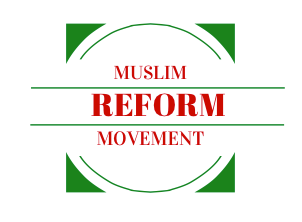Related Research Articles
A mosque or masjid is a place of prayer for Muslims. Mosques are usually covered buildings, but can be any place where prayers (salah) are performed, including outdoor courtyards.
Eleven women were confirmed to be married to Islamic prophet Muhammad. Muslims use the term Umm al-Mu'minin prominently before or after referring to them as a sign of respect, a term derived from Quran 33:6.

This table of types of hijab describes terminologically distinguished styles of clothing commonly associated with the word hijab.

The ʿUmrah is an Islamic pilgrimage to Mecca that can be undertaken at any time of the year, in contrast to the Ḥajj, which has specific dates according to the Islamic lunar calendar.
Amina Wadud is an American Muslim theologian. Wadud serves as Visiting Professor at Indonesian Consortium for Religious Studies and was also a visiting scholar at Starr King School for the Ministry. Wadud has written extensively on the role of women in Islam.
Islamic feminism is a form of feminism concerned with the role of women in Islam. It aims for the full equality of all Muslims, regardless of gender, in public and private life. Islamic feminists advocate women's rights, gender equality, and social justice grounded in an Islamic framework. Although rooted in Islam, the movement's pioneers have also utilized secular, Western, or otherwise non-Muslim feminist discourses, and have recognized the role of Islamic feminism as part of an integrated global feminist movement.

Asra Quratulain Nomani is an American author and former Georgetown University professor. Born in India to Muslim parents, she earned a BA from West Virginia University in liberal arts in 1986 and an MA from the American University in international communications in 1990. She subsequently worked as a correspondent for The Wall Street Journal with her colleague Daniel Pearl in Pakistan post-9/11. Pearl was kidnapped and murdered by Islamist terrorists while following an investigative lead. Nomani later became the co-director of the Pearl Project, a faculty-student investigative-reporting project which has looked into Pearl's murder.

Abdul Rahman Ibn Abdul Aziz al-Sudais, better known as Al-Sudais, is one of the nine imams of the Grand Mosque, Masjid al-Haram in Makkah, Saudi Arabia; the president of the General Presidency for the Affairs of the Two Holy Mosques; a renowned Qāriʾ ; he was the Dubai International Holy Qur'an Award's "Islamic Personality Of the Year" in 2005.
Gender segregation in Islamic law, custom, law and traditions refers to the practices and requirements in Islamic countries and communities for the separation of men and boys from women and girls in social and other settings.

The holiest sites in Islam are predominantly located in the Arabian Peninsula and the Levant. While the significance of most places typically varies depending on the Islamic sect, there is a consensus across all mainstream branches of the religion that affirms three cities as having the highest degree of holiness, in descending order: Mecca, Medina, and Jerusalem. Mecca's Al-Masjid al-Haram, Al-Masjid an-Nabawi in Medina, and Al-Masjid al-Aqsa in Jerusalem are all revered by Muslims as sites of great importance.
Saleemah Abdul-Ghafur is an author and activist focused on faith-based initiatives and gender equality in Islam who currently serves as the chief of staff and chief communications officer at the Bill & Melinda Gates Foundation. She works with Malaria No More, a leading non-profit formed to advance the United Nations Millennium Development Goals by ending malaria-related deaths by 2012. She also consults on a variety of interfaith projects and volunteerism efforts.

The Kaaba, also spelled Ka'ba, Ka'bah or Kabah, sometimes referred to as al-Ka'ba al-Musharrafa, is a stone building at the center of Islam's most important mosque and holiest site, the Masjid al-Haram in Mecca, Saudi Arabia. It is considered by Muslims to be the Bayt Allah and is the qibla for Muslims around the world. The current structure was built after the original building was damaged by fire during the siege of Mecca by Umayyads in 683.

Both Sunni Muslims and Shia Muslims agree on the three holiest sites in Islam being, respectively, the Masjid al-Haram, in Mecca; the Al-Masjid an-Nabawi, in Medina; and the Al-Masjid al-Aqsa, in Jerusalem.

Sıla Şahin-Radlinger is a German actress, best known for her portrayal of Ayla Özgül in the soap opera Gute Zeiten, schlechte Zeiten.

Sayyida Nafisa, the full name As-Sayyidah Nafīsah bint Amīr al-Muʾminīn Al-Ḥasan al-Anwar ibn Zayd al-Ablaj ibn Al-Hasan ibn ʿAlī ibn Abī Ṭālib al-ʿAlawiyyah al-Ḥasaniyyah, was a female descendant of the Islamic prophet Muhammad, and a scholar and teacher of Islam. Having taught Sunni Imam Muhammad ibn Idris ash-Shafi'i, she is the best known female scholar of hadith in Egypt.
The Inclusive Mosque Initiative (IMI) was founded in 2012, in London, UK. It is a grassroots activist organisation which works towards promoting the understanding of an intersectional feminist Islam. In practice, this means that IMI spaces and events are organised to be as inclusive as possible; unlike many existing mosques and religious organisations, IMI is not divided along linguistic, sectarian, political or ethnic lines. The organisation makes every effort towards providing disabled access to and within its venues, including British Sign Language (BSL) within its services, and giving translations of Arabic words when used.
Me and the Mosque is a 2005 Canadian documentary film by Zarqa Nawaz about the efforts of Muslim women in North America to pray in mosques, and the use of partitions to conceal women from male worshippers.
Islamophobia in Canada refers to a set of discourses, behaviours and structures which express feelings of anxiety, fear, hostility and rejection towards Islam or Muslims in Canada.

The Muslim Reform Movement is a U.S.-based organization dedicated to reform in Islam based on values of peace, human rights, and secular governance.
This is a list of individual liberal and progressive Islamic movements in Europe, sorted by country. See also Islam in Europe and Euroislam.
References
- ↑ "ISLAMIC BILL OF RIGHTS FOR WOMEN". peprimer.com. Retrieved 2016-04-05.
- ↑ "CNN.com - Transcripts". transcripts.cnn.com.